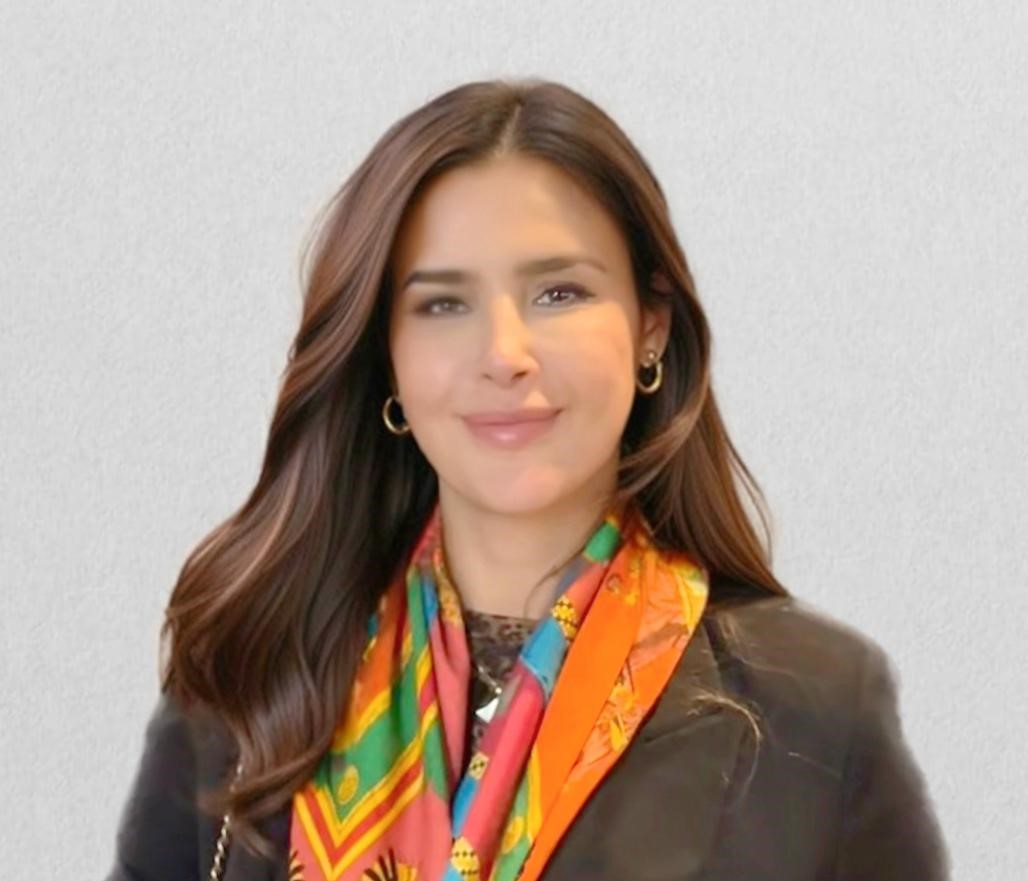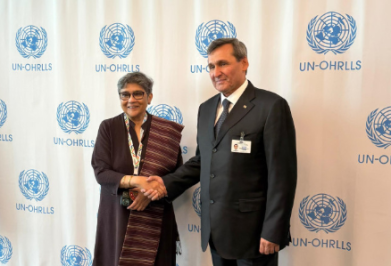Interview with the Ambassador of Pakistan: "There Are No Limits to Relations Between Our Countries"
23.09.2025 | 16:31 |This year, Turkmenistan is celebrating significant anniversaries: 34 years of independence and 30 years of permanent neutrality. On the eve of these events, we met with Ambassador of the Islamic Republic of Pakistan to Turkmenistan, Dr. Faryal Leghari. The diplomat, who arrived in Ashgabat just a few months ago, has already soaked up the atmosphere and feels right at home. We discussed the development of Turkmen-Pakistani relations and their future prospects.
— Madam Ambassador, you arrived in Turkmenistan relatively recently. Tell us how you feel in Ashgabat and what impressions your meetings with the Turkmen leadership left on you?
— It is a great honor for me to work in Turkmenistan; this is my first diplomatic mission, and I already feel at home here. I was fortunate to meet with President Serdar Berdimuhamedov, Foreign Minister Rashid Meredov, and Speaker of the Mejlis Dunyagozel Gulmanova. You know, in every conversation, I felt the warmth and hospitality, and I saw how clear and progressive the vision of the country’s leadership is.
I was fortunate to hear the speech of National Leader and Chairman of the Khalk Maslakhaty Gurbanguly Berdimuhamedov at the recent opening of the International University of Industrialists and Entrepreneurs. He asked the diplomats in attendance for proposals for the celebration of the anniversary of Turkmenistan’s permanent neutrality. Given his focus on education and youth, I’ve already suggested—and I’d like to repeat it here—holding lectures and discussions at universities and cultural centers. These could cover topics such as literature, culture, art, peace, international relations, equestrianism, and women’s empowerment. I believe this would be my modest personal contribution.
— Let’s look back. Let’s look back. How do you think relations between our countries have developed historically?
—The history of our partnership is truly unique. Pakistan became the second state to recognize Turkmenistan’s independence in 1992. Interestingly, it was in Islamabad, at the 1995 ECO summit, that Turkmenistan first announced its policy of neutrality to the world. Our ties have been strengthened by numerous high-level visits.
For example, in the past, there have been 19 visits from Pakistan at the level of heads of state and government, and four high-level visits from Turkmenistan. And, of course, we are very much looking forward to the upcoming visit of our Prime Minister Shahbaz Sharif this year. In Ashgabat, he will participate in a high-level forum dedicated to the International Year of Peace and Trust.
— In addition to bilateral visits, our countries actively cooperate on international platforms. What common interests unite us on the global agenda?
—Our countries are members of the UN, the SCO, the ECO, and the Organization of Islamic Cooperation. We always support each other. For example, Turkmenistan supported our bid for a seat on the UN Security Council for 2025–2026, and Pakistan, in turn, confirmed its support for Turkmenistan's candidacies to key UN councils and commissions. This shows how reliable our partnerships are.
— Let's talk about the economy. How great is the potential for cooperation, especially in light of major projects like the TAPI gas pipeline?
— The leadership of both countries understands the enormous potential hidden in our economic and energy sectors. Projects like the TAPI gas pipeline and the TAP energy project are already important factors in bringing us closer together. We highly value Turkmenistan's strategic energy resources and its leading role in the region. We believe that through dialogue and collaboration, we can overcome any challenges, given the changing geopolitical dynamics.
— What opportunities for dialogue do you see in other areas?
— We believe improving transport links is a top priority. We have proposed creating new trade routes that will connect Turkmenistan with Pakistan and provide access to regional and global markets through our ports of Karachi and Gwadar. World-class Pakistani companies offer logistics and infrastructure services that could significantly strengthen bilateral and regional connectivity through Afghanistan and provide the shortest overland route to the warm waters of the Arabian Sea.
We also believe it is important to resume direct air travel. This would open up enormous opportunities for trade, tourism, including medical tourism, and, of course, cultural exchanges. Just imagine how much faster perishable goods like mangoes and citrus fruits could be delivered!
We've already taken an important step toward developing business: Pakistani business visas for Turkmen entrepreneurs are processed in just 24 hours. Regarding trade, textiles are a key area. Turkmen cotton, yarn, and wool can be successfully exported to Pakistan, while Pakistani clothing and textiles can find a market here in Turkmenistan.
I'd like to add that the institutional mechanisms for cooperation are enshrined in dozens of memoranda of understanding. Additional agreements in the areas of trade, multimodal logistics, including seaports, culture, education, and tourism are under preparation.
— These are very interesting topics. Let's explore some of the areas within this spectrum.
Pakistan highly values Turkmenistan's trust in our military training system. Over the years, we have already trained 386 Turkmen military personnel. We believe there is great potential for further cooperation, for example, in border security training, countering drug trafficking, countering terrorism, and intelligence sharing. In today's world, where non-state players are exploiting the digital space, such cooperation is of paramount importance.
We have excellent universities, medical and vocational centers that could be opened to Turkmen youth. We are ready to provide scholarships to students and launch bilingual programs.
As for culture and fashion, we have so much in common! I am sure our designers could collaborate and stage joint shows. And in sports, we can also learn a lot from each other. For example, Pakistan is famous for its soccer balls, which are used at World Cups, and Turkmenistan for its unrivaled Akhal-Teke horses. I think joint polo and equestrian competitions could become a wonderful tradition.

— Your main message and wish for our countries?
— I am enthusiastic about advancing our relations. As my country's leadership has noted, "There are no limits to the relations between Pakistan and Turkmenistan." I sincerely hope that President Serdar Berdimuhamedov and National Leader and Chairman of the Khalk Maslakhaty Gurbanguly Berdimuhamedov will soon visit Pakistan, which we consider their second home. Let us work together to strengthen our friendship, especially in this significant year.
The interview with Ambassador of Pakistan Dr. Faryal Leghari demonstrated a deep understanding of the historical commonality and strategic interests that unite the two countries. The open dialogue demonstrated that the partnership between Turkmenistan and Pakistan is not limited to political and economic cooperation, but encompasses such important areas as culture, education, sports, and security. The clear and concrete proposals voiced by the Ambassador demonstrate Pakistan's readiness to actively expand ties and give confidence that these friendly relations have a bright future ahead.











